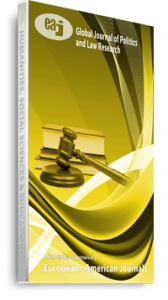The global benchmarked stipulation for environmental democracy is expressed in Principle 10 of the Rio Declaration on Environment and Development, 1992. UN systems, international-intergovernmental organisations, regions, countries and private sector organisations as well as other sectors and units of the world’s political economy are designing and evaluating their environmental democracy frameworks to achieve this global benchmarked stipulation. Hence, the UN Economic Commission for Europe’s Aarhus Convention, 1998, features as an elaborate expression of environmental democracy around the world. While developing countries are yet unable to efficiently implement environmental democracy in the course of Environmental Assessment in their respective jurisdictions, especially in resource-rich developing countries like Nigeria, the COVID-19 pandemic erupted and is ravaging humanity and disrupting the economic wellbeing of countries. Thus, this paper examines the challenges and opportunities associated with environmental democracy in the course of Environmental Impact Assessment process and practice in Nigeria.
Keywords: Nigeria; COVID-19 pandemic, challenges and opportunities, environmental democracy, environmental impact assessment (EIA), public involvement (PI)

